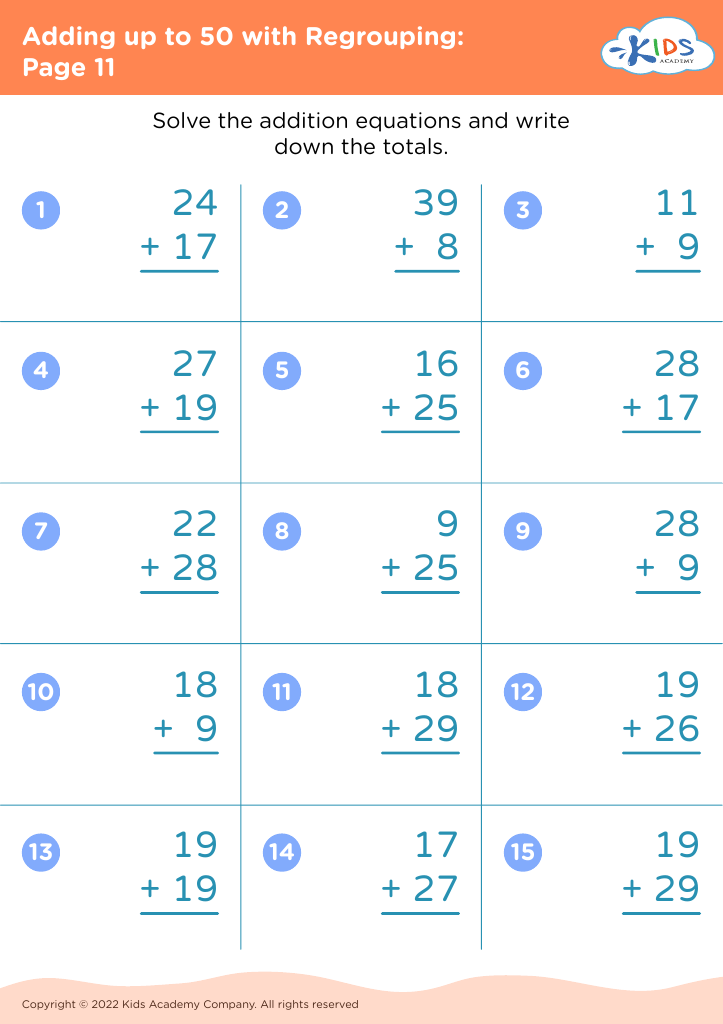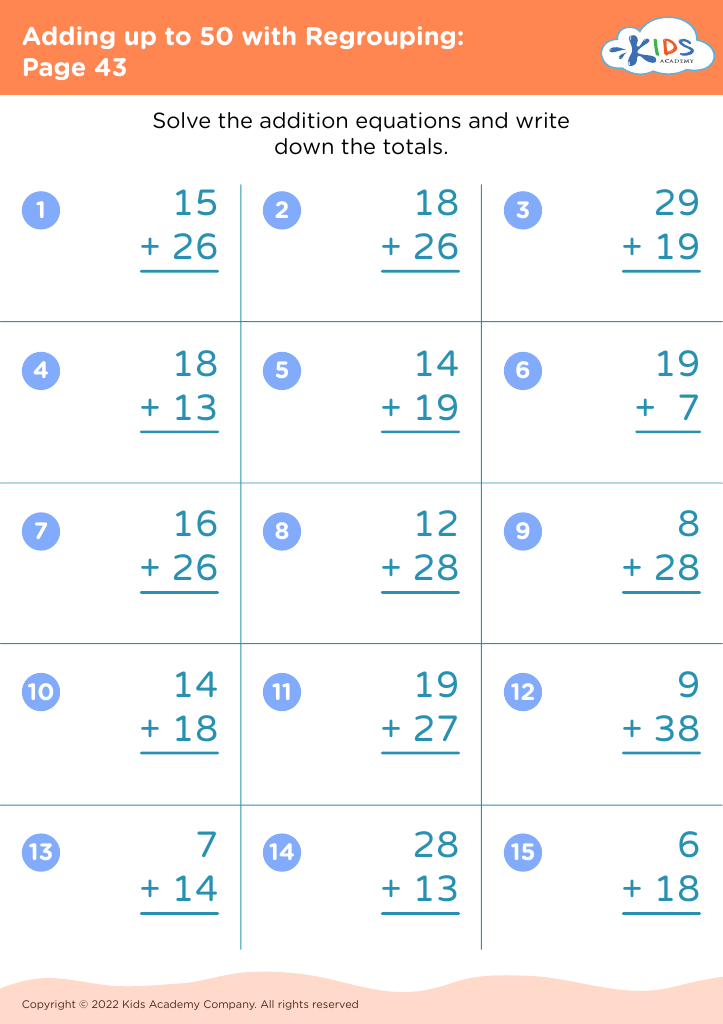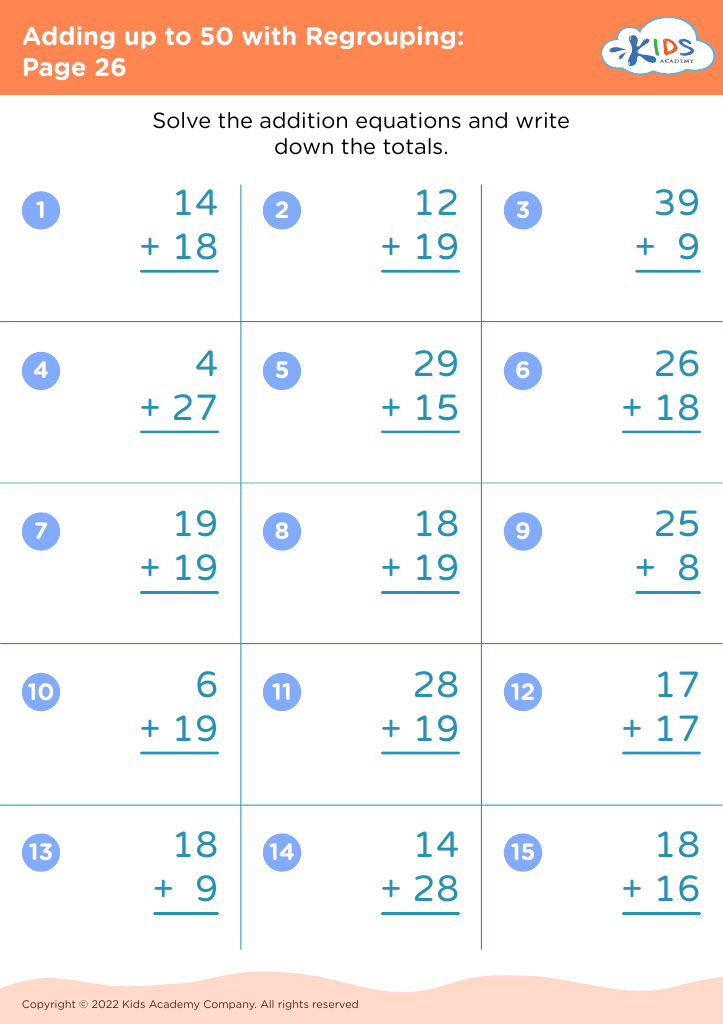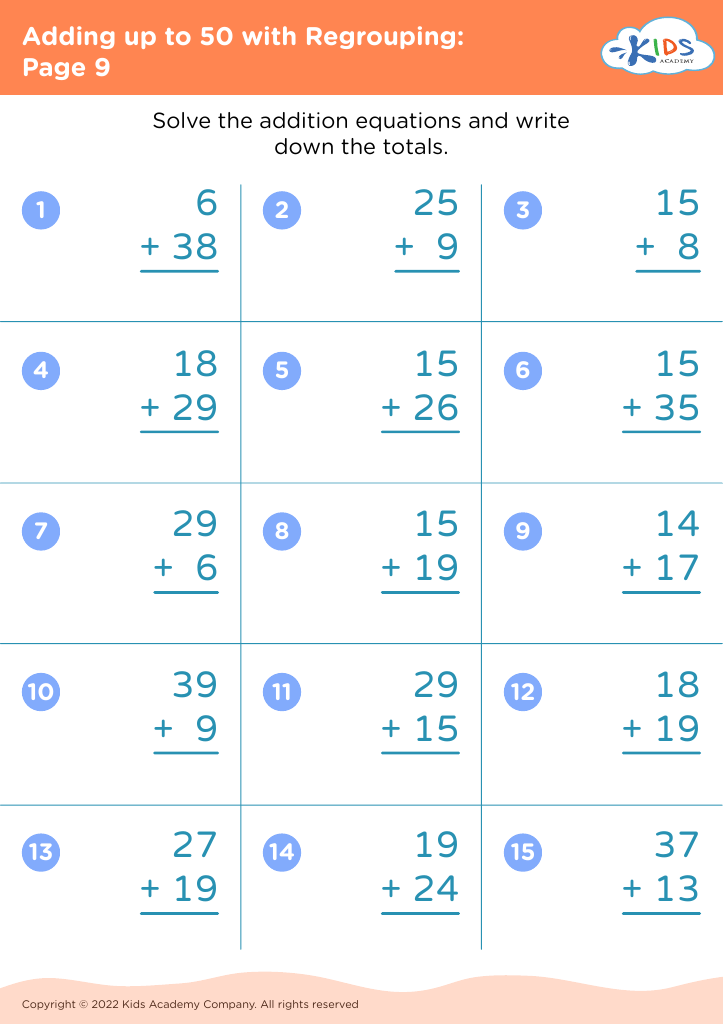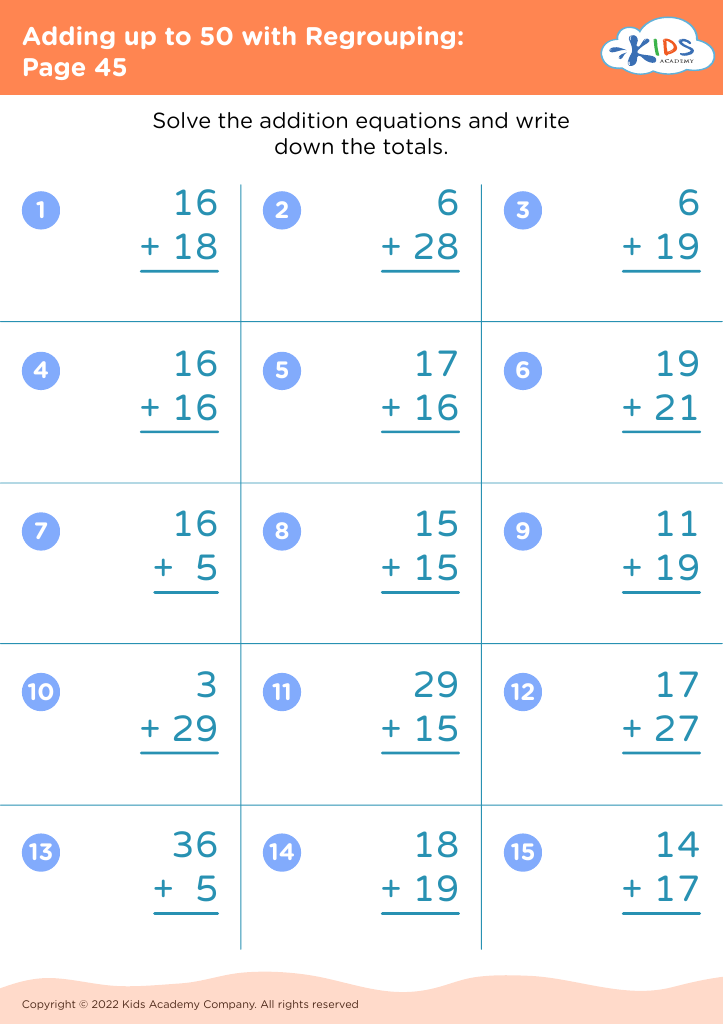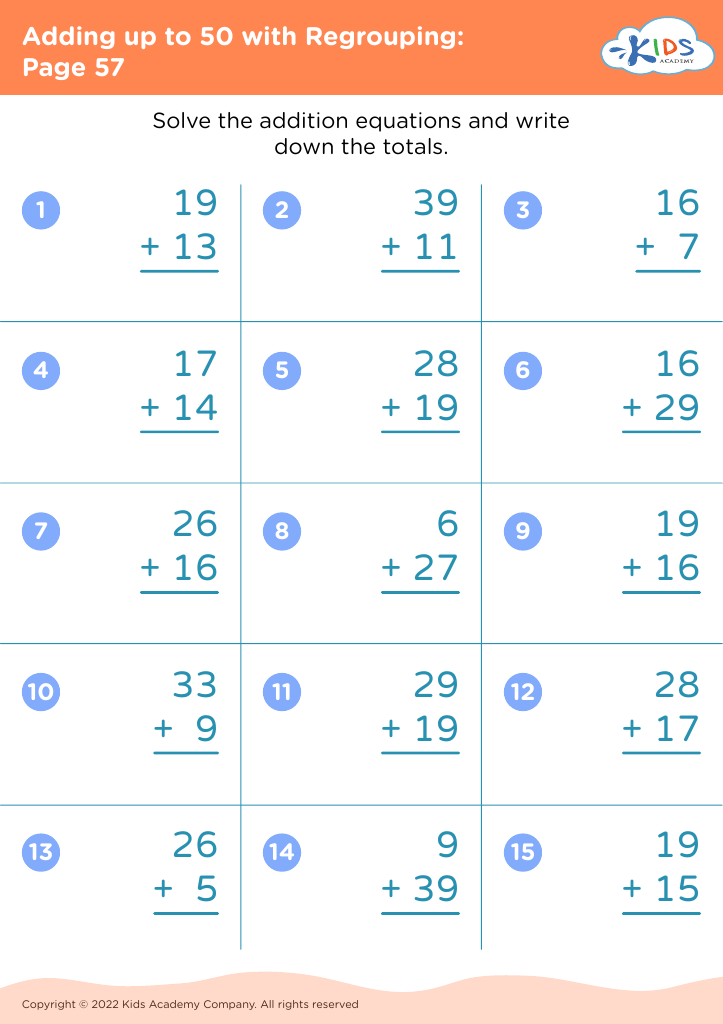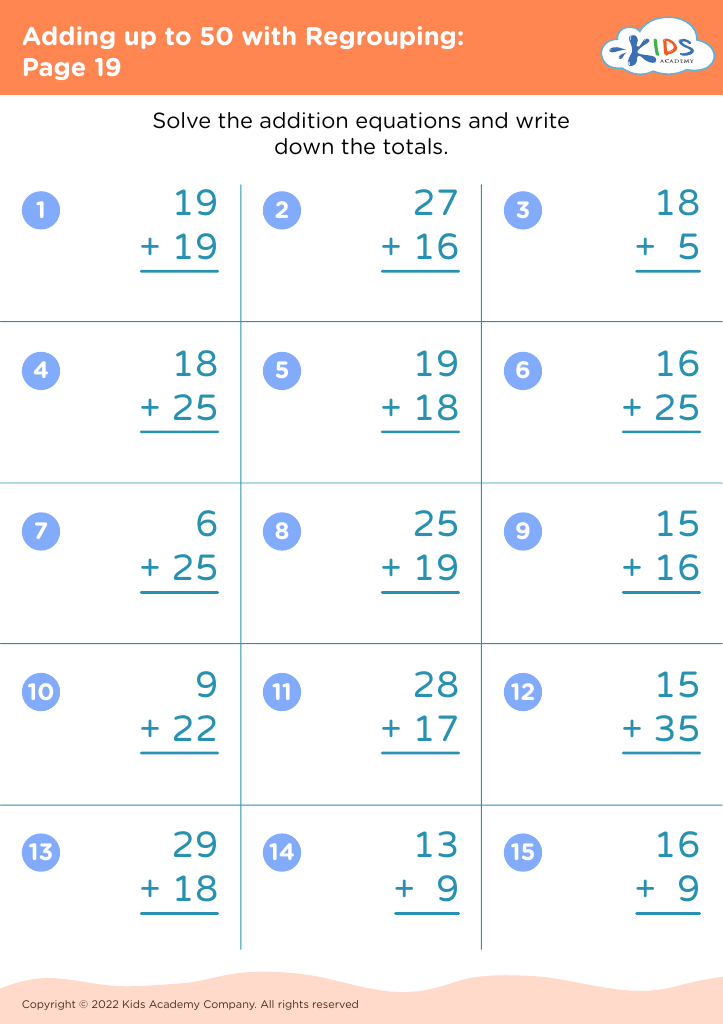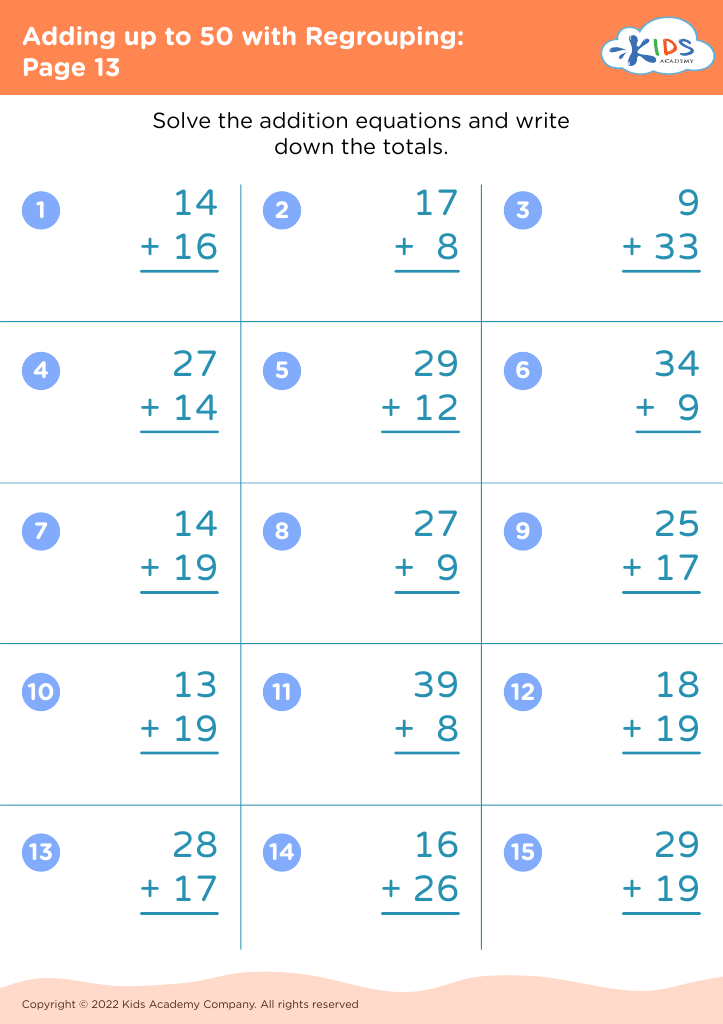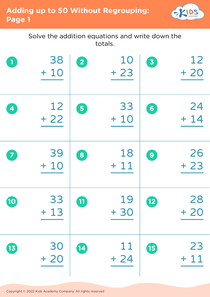Counting skills Adding up to 50 with Regrouping Worksheets for Ages 7-8
13 filtered results
-
From - To
Unlock your child's math potential with our "Counting Skills: Adding up to 50 with Regrouping" worksheets, designed specifically for ages 7-8! These engaging and interactive worksheets focus on reinforcing essential counting and addition skills through regrouping techniques. Children will confidently navigate addition problems up to 50, enhancing their understanding of number composition and decomposition. Each worksheet features vibrant illustrations and varied problem types, making learning fun and effective. Perfect for classroom or home use, these resources will build your child’s math foundation and boost their confidence. Explore our collection and watch your young mathematician thrive!
Counting skills, particularly adding up to 50 with regrouping, are essential for children aged 7-8 because they lay the foundation for more complex mathematical concepts. Mastering these skills enhances a child's ability to tackle addition problems with multiple digits, which will be vital as they progress into higher-level arithmetic, such as subtraction, multiplication, and basic algebra.
Furthermore, counting and regrouping develop critical thinking and problem-solving abilities. When children grasp how to regroup during addition, they learn to visualize and manipulate numbers, fostering a deeper understanding of numeric value and relationships. This skill not only builds confidence in their mathematical abilities but also instills a growth mindset as they navigate challenges.
Additionally, these skills have practical applications in everyday life—whether they are measuring ingredients in cooking, budgeting allowance, or telling time. Parental and teacher involvement in nurturing these counting skills provides children with a supportive environment that enhances their learning experience. Moreover, these early competencies set the stage for future academic success, reinforcing the idea that a solid foundation in mathematics is integral to overall educational achievement. In underestimating this phase, we risk creating gaps in understanding that can impact a child's performance in later grades.

